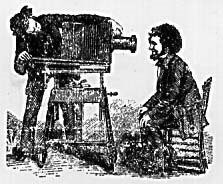Sardar and Van Loon begin Introducing Cultural Studies by trying to define what exactly cultural studies is. The conclusion I got from it is that cultural studies has no clear beginning, yet it is attributed to the “founding fathers”, Hoggart, Williams, Thompson, and Hall. Both the book and the reader pin the post World War II era as the foggy beginnings of cultural studies. “The Second World War had just ended, educational opportunities within Britain were being promoted as a means of post-war reconstruction. But pre-war class politics was still the norm in a changed and rapidly changing social environment. Moreover, Britain was being invaded by popular American culture that shaped public consciousness and highlighted the class-ridden character of English cultural life.” (Sardar/Loon, 25) Munns and Rajan complement this history: “Most scholars in both countries see it emerging as an area of academic research, and consequently, a pedagogical practice from different socio-political and economic changes that followed the second world war.” (Munns/Rajan, 1)
1) Each text commemorated the works of Karl Marx as being a key ingredient to the history of cultural studies. In main part, his ideas about class and society. Keywords defines class as “a social ordering that articulated privilege and deference”. (39) It goes on to say that, “Classes affect life chances for individuals--the probabilities of social and occupational mobility; of educational access and achievement; of illness and mortality. They also shape the experiences of individuals, producing the possibility of (more or less coherent) class consciousness”. (40)
2) Sticking to the origins of class and its connections with cultural studies, I investigated Karl Marx on Wikipedia. http://en.wikipedia.org/wiki/Karl_Marx
“The history of all hitherto existing society is the history of class struggles”.
“Marx devoted himself to an intensive study of history and elaborated on his idea of historical materialism, particularly in a manuscript (published posthumously as The German Ideology), the basic thesis of which was that "the nature of individuals depends on the material conditions determining their production." Marx traced the history of the various modes of production and predicted the collapse of the present one—industrial capitalism—and its replacement by communism.”
3) One of the founding fathers of Cultural Studies was E.P. Thompson, who’s work focused on understanding class. Sardar and Van Loon write, “class is not a thing-it is something which in fact happens (and can be shown to have happened) in human relationships”. (Sardar/Van Loon, 31) Thompson defined class as “a social and cultural formation arising from processes which can only be studied as they work themselves out over a considerable historical period”. (Sardar/Van Loon 32) He explores how different class standings can effect the way an individual views life. For more information on Thompson, visit http://www.spartacus.schoolnet.co.uk/HIStompson.htm
So, although there are many differing views on the term "class", it is evident that it is important to understanding the origins of cultural studies.
announcements
This blog was created by and for students in an Introduction to Cultural Studies class at the University of Washington. Through an investigation of urban experience and representation--in theory, in graphic novels and in our own "readings" of Seattle's University District--we considered the formation and history of cultural studies as an (anti)discipline, with a special emphasis on the questions, "What does cultural studies do, and how do you do cultural studies?"
If you'd like to know more about the class, the blog or our U-District artifact project, please contact Gabrielle Dean: gnodean@u.washington.edu.
If you'd like to know more about the class, the blog or our U-District artifact project, please contact Gabrielle Dean: gnodean@u.washington.edu.
Subscribe to:
Post Comments (Atom)
blog archive
-
▼
2008
(92)
-
▼
April
(35)
- Identity in City of Glass
- History of Origins: Race Studies
- History of Origins: Gender Studies
- History of Origins: Gender Studies
- History of Origins: America
- History of Origins: Race Studies
- History of Origins: Gender Studies
- History of Origins: Race Studies
- History of Origins: Race Studies
- History of Origins: Media and Science
- History of Origins: Media and Science
- History of Origins: Gender Studies
- History of Origins: Media and Science
- History of Origins: European Theory
- History of Origins: European Theory
- History of Origins: European Theory
- History of Origins: European Theory
- History of Origins: European Theory
- History of Origins: America
- History of Origins: European Theory
- History of Origins: America
- History of Orgins: European Theory
- History of Origins: European Theory
- History of Origins: Great Britain
- History of Origins: Great Britain
- Cultural Studies in Britain
- Cultural Studies in Britain
- History of Origins: General
- History of Origins: General
- History of Origins: General
- History of Origins: General
- "Orientalism"
- Are You an Author?
- "Paris, Capital of the 19th Century"
- READING: A WEB MODEL
-
▼
April
(35)

No comments:
Post a Comment